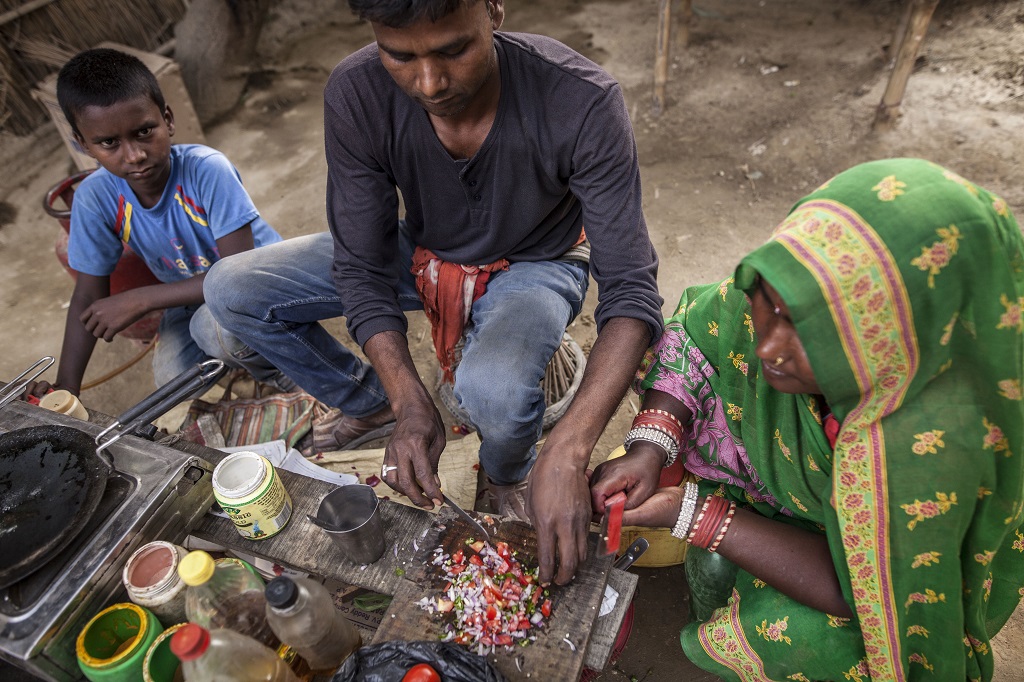A small restaurant of her own brought happiness to Savitri Devi Mandal’s family
Savitri Devi Mandal welcomes us into her home. We sit in a small courtyard surrounded by rooms. Mandal’s sari is vibrantly colourful. Her silver jewellery, part of the local culture, speak of her position as a married woman.
”I am very happy now, especially when working in our restaurant,” she says.
Mandal, 39, lives with her husband, her mother-in-law and her four children in the village of Gonarpura in the Terai region in southeast Nepal. In recent years, the life of the family has taken a major turn for the better.
Life in Gonarpura today is much the same as it has been for hundreds of years. The beautiful houses by the banks of the river are made of a mixture of clay and concrete. The corners of the houses are soft and round, their roofs are made of straw, and no cars would fit to drive on the narrow sand paths between the houses – not that anyone has a car here. Water comes from the well. Big haystacks in the field in front of the village provide food for the cows. Chicken and goats populate the yards.
The region is beautiful but poor. Terai is an underdeveloped region even on the scale of impoverished Nepal.

Savitri and Sankar are cooking, joined by son Saudi. Meat is not part of the restaurant’s menu, because it is too expensive.
Visibly proud, Mandal goes inside into one of the rooms for a gas cylinder and a small gas stove she got as entrepreneurial support that she drags out to show us. They helped her and her husband Sankar to start a ”restaurant.” They prepare and sell food at a small marketplace next to the village by a bridge crossing the river.
Something has changed in the village over the past few years – for the better. Finn Church Aid’s livelihood project has provided women with education and support for agriculture and small-scale entrepreneur activities, for example in the form of a cow or a sewing machine. New skills have brought wellbeing and decreased work migration to neighbouring country India.
”Forget about the dowry!”
”Now we can work together. My husband doesn’t have to leave home to look for work. We all have proper clothes. We are even able to put money away for saving. Our children are all in school, and we can afford to pay for school supplies and remedial education,” says Mandal, herself illiterate.
”Don’t save for the dowry yet, keep your daughter in school for as long as she wants to! It’s going to be long before she needs to marry,” advises Finn Church Aid’s project coordinator Arati Rayamajhi, when Mandal says her only concern is her daughter’s dowry. Daughter Laxmi is 13 years old.
Restaurant open every night
Savitri Devi and Sankar Mandal’s restaurant opens at four in the afternoon. 14-year-old son Chanchal transports the gas cylinder and stove to the marketplace with a push cart. Savitri and Sankar sit behind the stove, next to each other.
There are eggs on the table to make an omelette, with onions, tomatoes and chilli chopped as fillings.
They sit here every day until nine in the evening. ”However, I feel energised in the morning, because I don’t have to worry about something all the time anymore,” says Savitri Devi Mandal.
Text: Ulla Kärki
Photos: Veera Pitkänen